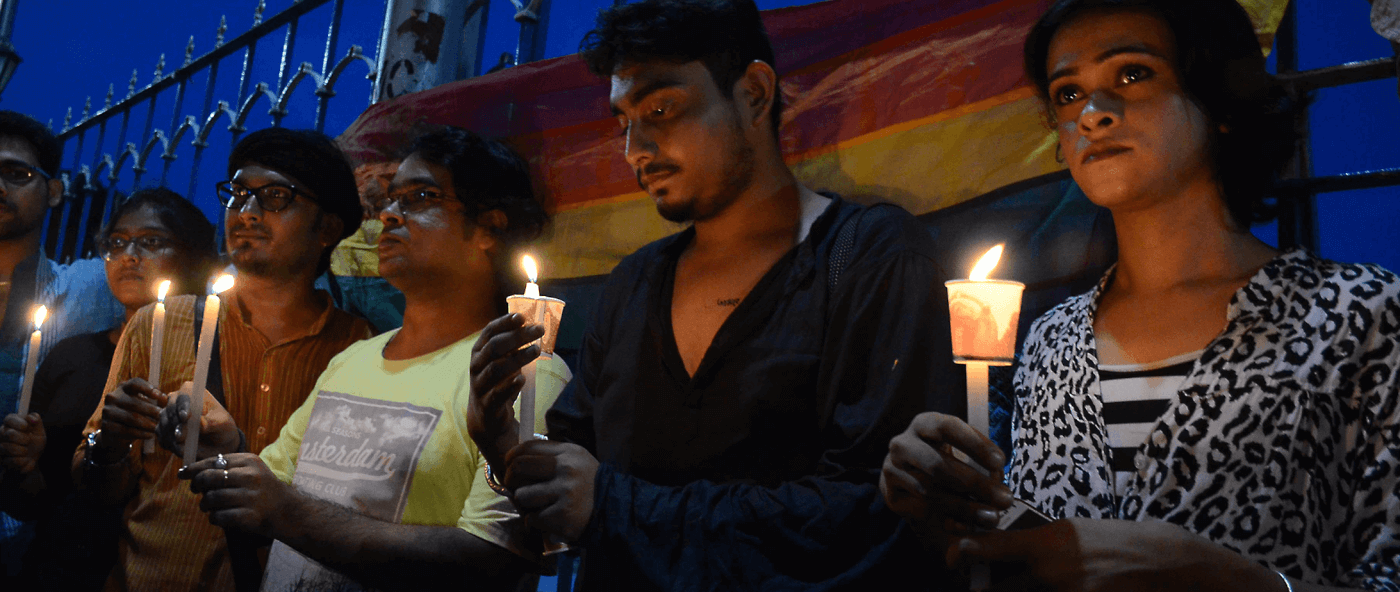By now we all know what happened.
One year ago today, 49 people were murdered in the most deadly mass shooting in U.S. history. They were people of all genders. They were mostly Black and Latinx. They were all targeted because they were at a club catering to lesbian, gay, bisexual, transgender, queer, and allied people.
And with 49 dead and more than 50 wounded, I can’t help but think about how this tragedy helped our society at-large to begin to see people like me as human. Especially in tragedy.
As is usual in the throes of a mass medical emergency, Central Floridians were called upon to donate blood, and the world began to grapple with it all. And in this case, many of those who were closest to the tragedy were members of the region’s LGBTQ community and, of course, immediately wanted to give blood, which was vital for the surviving victims.
Subscribe to get a twice-weekly dose of queer news, updates, and insights from the INTO team.
in Your Inbox
But due to federal laws, many of those wanting to help were blocked from doing so— even if they were family— due to being LGBTQ.
The lifetime blood donation ban for gay and bi men, and often in practice trans women as well, was announced by the FDA in 1983 in the early years of the AIDS crisis. Two years ago, long after the science around the question had evolved, the lifetime ban was altered, becoming a twelve-month ban starting from a person’s most recent sexual activity with another man. Of course, for many of us that is effectively no different.
But the dialogue around the blood of queer men has also evolved, even just since 2016 — and Pulse was a factor in this change. Following the massacre, a whole new wave of pressure poured into the FDA from LGBTQ people and our allies all over the country. And the very next month, the FDA initiated a process many hope will result in a complete overhaul of the policy. The first step is an open open call to the research community for relevant evidence on what reforms might look like.
A few months before, a surgeon at Johns Hopkins University did the first HIV-positive-to-HIV-positive organ transplant in the United States. The year after the blood ban was instituted, the government and UNOS, the United Network for Organ Sharing, promulgated a similar policy that the organs of HIV-positive people were unfit for transplantation. Since then, South Africa began HIV-positive-to-HIV-positive transplants in 2008, but in the U.S. we continued throwing away life-saving organs for another eight years.
But I’m encouraged that it’s happening now and I’m encouraged by all of the activism that has come out of the tragedy.
I’m hesitant to suggest that our grief must do something in order to be meaningful – grief is a long and winding process, and it can take as many forms as there are people. But I do want to suggest that some of the deepest healing we can do takes place in community, particularly when we do come together and transform our grief by working to transform the world.
My fondest hope is that those who have been spurred to action by this and other tragedies in our community pay attention to the details of the story though.
What can ultimately make activism the most transformative is when those who are most impacted are able to take their place at the helm. In this case, we must continue listening to queer people of color just like our Black and Latinx siblings we lost that night, as well as the queer Muslims who may have suffered increased prejudice in its wake.
And we can begin by having more conversations with our policy makers about better ways to change anti-LGBTQ policies—like the continual ban on blood from gay and queer men.
If we want to change medical policies, gun policies, and the rest of the world to better take into account the LGBTQ experience, these are the experiences to lead with, because a world that is safer for queer people of color is a world that is safer for everyone.
If Pulse taught us one thing, it’s that we are resilient and through all bad things we will and can come out stronger than ever before.












